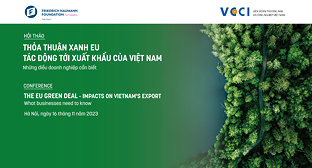EC asked to consider permanent market access for Pakistan
26/05/2008 12:00
In the third meeting of the EC with Pakistan’s sub-trade group, Islamabad urged the Commission to consider its request for neutralising the adverse impact of the market access provided to the countries of South Asia such as Bangladesh and Sri Lanka, revealed agreed minutes of the meeting, held in Islamabad recently, available with The News.
Taking note of
Pakistan also expressed concern that the proposed softening of EC’s preferential Rules of Origin for textile and garments may encourage shifting of the value-added industry to Least Developed Countries (LDCs), due to their duty-free access to the EU market.
Regarding anti-dumping duty on bed-linen import,
To comply with EC standards, the commission made it clear that the re-listing of Pakistani seafood exporters will be initiated if corrective measures as per the EC guidelines are taken, and that the commission’s inspection is a must for
Briefing on rice and its registration as geographical indication (GI) under TMO, 2001, Pakistani officials requested the visiting delegates for correcting the list of Basmati varieties mentioned in the EU regulation as the commercial property of
About export tax on raw hides and skins and wet blue, Pakistani officials told the EC that the duty has been imposed to ensure adequate supply of raw material to the value-added domestic industry. The domestic industry is demanding a complete ban on the export of raw skins and hides as it is not helpful in discouraging exports.
The EC team informed their Pakistani counterparts that they are studying to assess the impact of trade policies on
The EC also requested
Shahid Bashir, Senior Joint Secretary of Ministry of Commerce headed the Pakistani side, whereas Jan De Kok, head of EC delegates,
Source: www.thenews.com.pk
Các tin khác
- More efforts needed to maintain export growth to China: Insiders (24/04/2024)
- Shadow trade minister calls for greater focus on removal of Chinese trade barriers (24/04/2024)
- New U.S. Solar Panel Tariff Intensifies Sino-American Green Tech War (24/04/2024)
- It is expected that there are higher orders and revenue in the second quarter from European businesses (24/04/2024)
- U.S. Ceramic Manufacturers Seeking Tariffs Against Indian Import (24/04/2024)
 Home
Home
 About Us
About Us




















